Going public opens a new era in the life of a company, raising brand awareness, opening access to new sources of funding and creating additional ways to motivate leaders and employees. Attention from the analytical community, investors and new shareholders provides important impetus for improving business performance. A public company should be transparent, have a high level of corporate governance and meet international standards of best practice. The more transparent a company is with investors the cheaper and more accessible equity and debt capital will be to access.
Moscow Exchange (hereinafter also referred to as the Exchange) embarked down this road in 2013 by launching a RUB15 billion IPO on its trading floor. We made a point of proving by example that Russian companies can effectively float shares on the domestic market without issuing depositary receipts and listing abroad. The strong demand for Moscow Exchange shares and the extensive geography and profile of the investor base reaffirmed that it was possible to float successfully solely on Moscow Exchange. The ensuing share price growth and successful RUB16 billion SPO that followed in July 2014 demonstrated that investors highly appreciate the quality of our corporate governance, as well as our solid development strategy in the face of a changing market environment.
In recent years we have introduced crucial reforms which have elevated the infrastructure of the Russian market to a level conforming to the standards of international investors. The central securities depository and central counterparty have been working at full steam, international settlement depositories have begun transactions with Russian assets and the securities market has been transferred to the T+2 settlement cycle without full prefunding. Listing, procedures have now been reformed and the current requirements are based on our new Corporate Governance Code, which sets the high standards for interaction between the company"s shareholders and management.
As a result, trading on Moscow Exchange is now just as convenient and reliable as the world"s major exchanges. Both Russian and foreign investors prefer to trade shares of domestic companies on Moscow Exchange, which has become the centre of liquidity and pricing on the Russian stock market. This encourages issuers to raise capital on the Russian trading floor (e.g., the RUB41.3 bln ALROSA IPO in October 2013, listing of companies with foreign jurisdictions but predominantly Russian businesses: Polymetal, Yandex, QIWI, Lenta).
Moscow Exchange supports the entry of companies to the capital market ? this is our immediate interest. Exchange specialists start consultations with companies at an early stage of the IPO decision making process, and help them both during and after the share flotation to improve corporate governance and meet regulatory requirements regarding information disclosure. An official opening ceremony – striking a bell – to start share trading has become a tradition.
The Exchange has set up committees for share and bond issuers, where they can obtain information on regulatory changes to the stock market and on new products available on the Exchange. They can also put forward proposals to aide development of the securities market. By doing so, issuers have their role to play in improving legislation, as well as the rules for listing and circulating securities.
Moscow Exchange IPO Guide (hereinafter referred to as the Guide) is intended for companies planning to go public and for issuers whose shares are already traded on the exchange. We have described the main stages of the share flotation process: from preparing the issuer for the offering to the post-IPO life of the public company.
We know from experience that a company needs informed advice at the start of its transition towards information transparency and during the transformation of its internal decision-making mechanisms. Hopefully, the Guide will help issuers to progress towards the development of a modern public company.
My special thanks go to the leading consultants, who support companies entering the financial markets, for their contribution to the preparation of this Guide.

